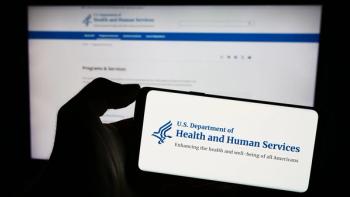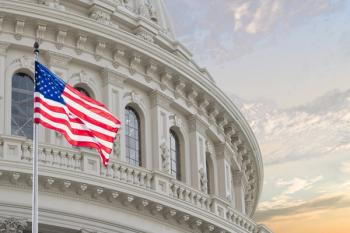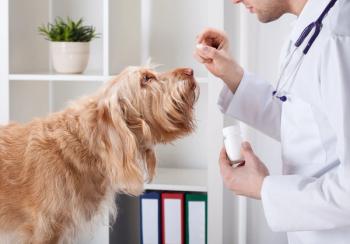
Bill stalled to address pet overpopulation,high euthanasia rates in North Carolina
Raleigh, NC -Criticism could continue to plague veterinarians, as a proposed animal protection act did not see its way into the state's legislature this year.
RALEIGH, NC-Criticism could continue to plague veterinarians, as a proposed animal protection act did not see its way into the state's legislature this year.
"Finger-pointing citizens, who are unwilling to accept their responsibility as pet owners, have dubbed practitioners the villain," says Dr. Elizabeth Lyerly, one of the two veterinarians who sat on the committee to raise interest in the problems in North Carolina shelters.
The Prevention and Disposition of Unwanted and Abandoned Companion Animals bill was created to improve a stronger spay/neuter program and conditions in shelters - including regular inspections.
People say veterinarians should be performing spays and neuters for free or significantly reduced fees, says Lyerly.
No matter who the blame is on, the bill did not have enough lawmakers backing it.
"I think the fact that it's an election year stopped legislatures from backing the bill," says Molly Rasor, executive director of NCVMA.
Those closely connected to the bill hold high hopes for its introduction next year to long session.
"We need to be moving forward and getting this implemented," says Lyerly. "Nothing will get better without intervention."
"The bill is politically charged," says Dr. Lee Hunter, North Carolina public health veterinarian. "No one wants to back it because it is an election year."
Wake County's Society for the Prevention of Cruelty to Animals (SPCA) offers reduced spay and neuter vouchers for those who meet the criteria - one of which is the individual's annual income must not exceed $50,000.
Great need for change
Lyerly says it seems every time there is a pet overpopulation problem; it's the vets' fault. "You don't hear people yelling at grocers to give free food out to low income families, why are we being blamed for this?" Lyerly asks.
In 2002, an estimated 265,289 animals were euthanized in shelters, spurring the North Carolina General Assembly to announce a crisis level of dog and cat overpopulation.
"Some shelters are omitted from the count too," says Hunter. "That increases the actual number. The 2003 total will not be available until August 1."
The state has been labeled as having the highest euthanasia rate in the country.
"The euthanasia rate is so high because the population is so high, it's a vicious cycle," Rasor says. For 15 years, the state's 100 counties have been unable to reach an agreement on an appropriate way to fund pet population control. "Some people think it's cool not to have their pets spayed or neutered," Rasor adds. "What do you do then?"
Lyerly sat on the 28-member committee formed to gather information on the local shelter situation. The committee composed of lawmakers, veterinarians, animal control, local government officials and animal control advocates, ultimately formed the text in the 20-page bill.
Opposition to bill
Major opposition to the bill comes from the method of collecting necessary money to fund a spay/neuter program.
Raising the tax on animal food, that has been established since 1973 to an estimated $10/ton for dry food and $1 for each 48 cans of canned food would be enough to fund the project, Hunter says.
Retailers say pet food manufacturers could increase the cost of food more than what is needed, saying they will tag the increase as "administrative charges." Instead of a few cents more for food, a really noticeable increase may be made.
Distributors and manufacturers will just have to write a larger quarterly check, says Dr. Charles Kirkland, director of animal health programs, livestock section for the North Carolina Department of Agriculture.
"The bill encompasses two programs for the state including a spay/neuter program and inspection of public animal shelters," Kirkland says. "The Department of Agriculture would have jurisdiction over privately owned, non-profit shelters."
Veterinarians are supporting "I care" license plates the state created to raise money for spay/neuter programs, some even put the advertisement for the plates in the lobby of their clinics, Rasor says.
"I know of a vet that paid the difference for all of her staff to get the special license plates," says Rasor.
In a survey conducted by the NCVMA, veterinarians reported to have spent 159 hours of volunteer hours that year. Nearly 155 reported to have performed reduced or free spays /neuters per year.
"There is a current spay and neuter program in the state, but it is not being utilized," says NCVMA President Mark Brigham, DVM. Counties applying for the program's funding are getting bogged down in red tape. "We want the program to be more user friendly," Brigham says.
The month-long program called SNIP, gives 20 percent off spay and neuter procedures, Lyerly says. "This program is throughout the state and is a huge service the veterinarians provide."
People interested in the program take their pet to the veterinarian, then the veterinarian recommends a participating doctor. The surgery is performed and the veterinarian is reimbursed.
Veterinarians will ultimately be reimbursed by the state, Rasor says.
It's the trickle-down effect, Brigham says. "We need to get fewer fertile animals in the state."
For now, the bill rests in committee. If the bill is passed next year, there will be many veterinarians ready to offer their services, Brigham says. "They want to participate in the community."
Veterinarians working not-for-profit and those running a private practice have been played against each other with their fees. "The passing of this bill would level the playing field," Brigham says.
Although there will still be differences in fees from county to county, and the way the veterinarian performs the procedure, there will be a set protocol.
Veterinarians who wish to participate in the program will submit bids, the most competitive bids will be the ones asked to participate.
"After the election year is over, I'm willing to bet the bill will be backed," Brigham says. "Legislatures say they don't want to send the message it's OK to trickle the fee down to the public."
The increase will literally cost pennies per pound to distributors. "If the general public catches on that a legitimate difference will be made, this will really work," Brigham says.
Hunter's office created a second rabies tag for the state that if owners chose to buy would be at an increased cost, but revenue would go to spay/neuter programs.
Veterinarians were not supporting this tag highly because they prefer to have their own clinic's name and information on the tag, Rasor says. Veterinarians are also opposed to increasing the fee for the rabies vaccine, fearing less owners will bring their pets in to be inoculated.
"Changes need to be made to the bill for it to work," Rasor says.
A lot of awareness has been brought to the attention of the legislature, but no legal changes have been made. "Instead of continuing to empty the bucket, we need to turn off the tap," Lyerly says.
Newsletter
From exam room tips to practice management insights, get trusted veterinary news delivered straight to your inbox—subscribe to dvm360.





